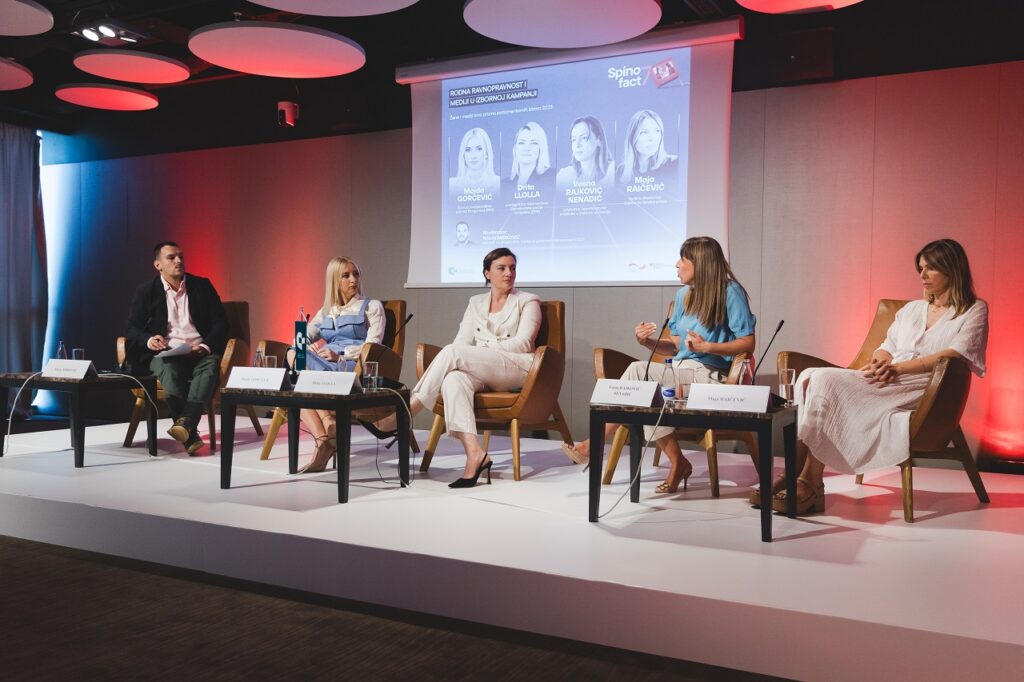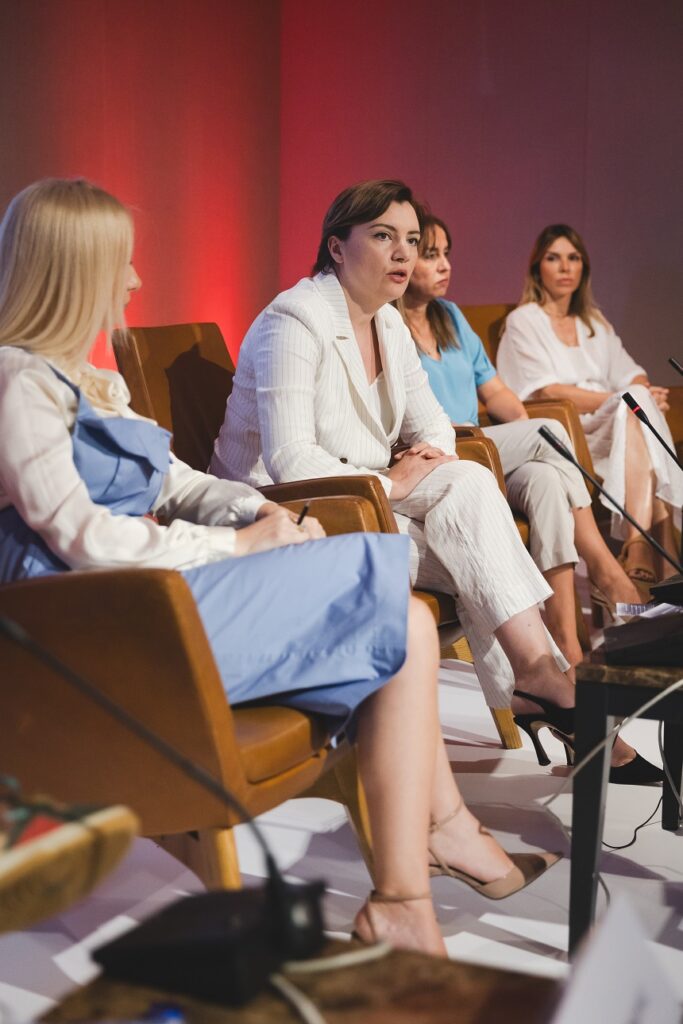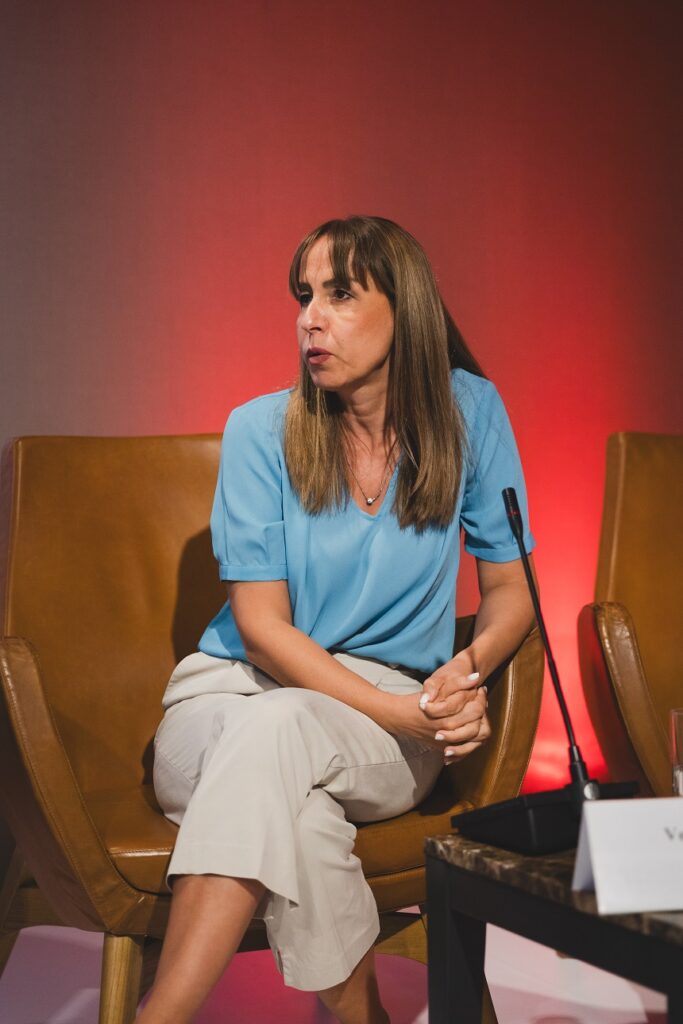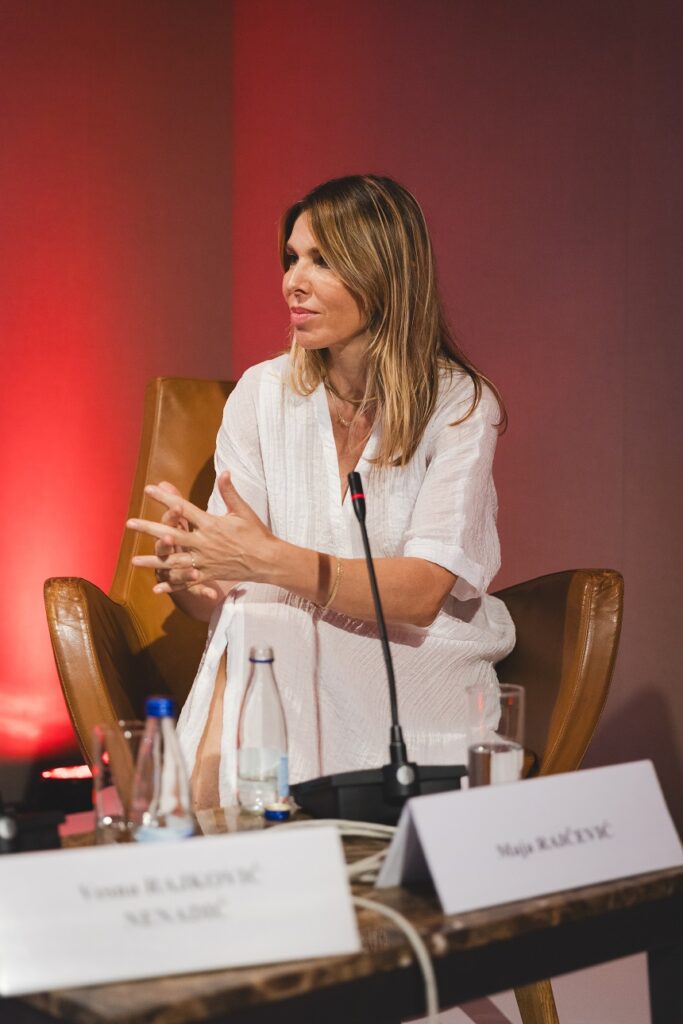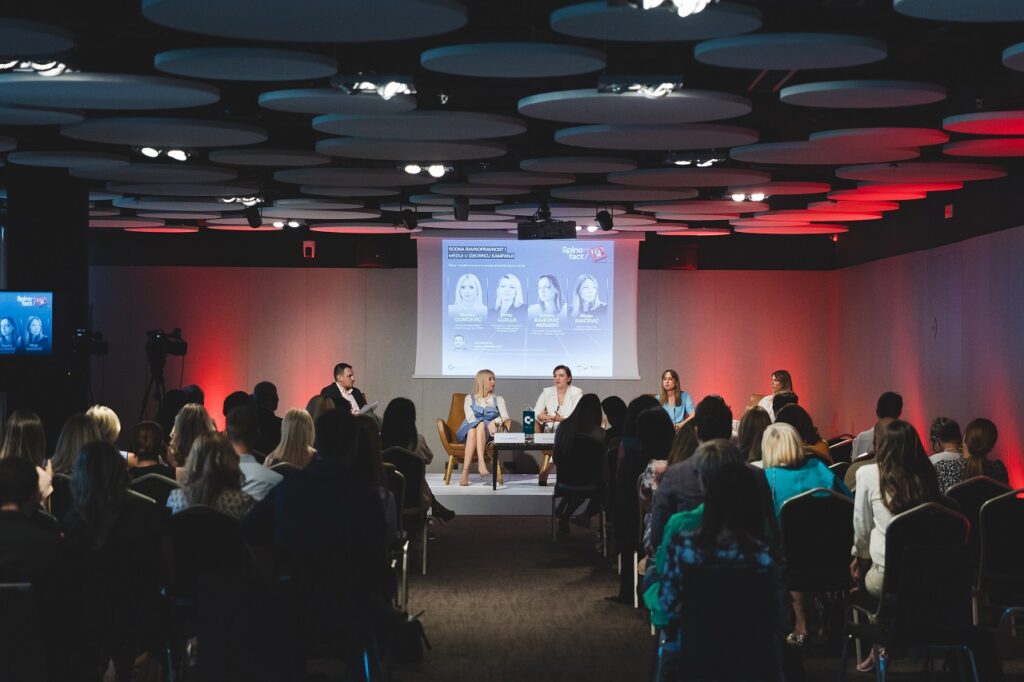Persistently and systematically, women are discouraged from participating in politics, and the responsibility lies with the leadership of political parties and the patriarchal context, which demonstrates its belief system through hate speech and does not forgive women when they speak publicly and express their views, whether it is activism in politics, the civil sector, or any other public engagement, was the message conveyed during the panel “Women and Media through the Prism of the 2023 Parliamentary Elections,” organized by the Centre for Civic Education (CCE) as part of the conference “Gender Equality and the Media in the Election Campaign”, with the support of the Government of FR of Germany.
Maida Gorčević, a member of the Presidency of the Movement Europe Now (PES), emphasized that in the PES, they are working on setting and changing certain things, not only concerning gender equality. “I consider it important to start with the lists and the number of women on them. We had a little more than the legal requirement, but we were not guided by having every third or fourth woman due to the law, instead, we valued their knowledge and expertise, and how women can fundamentally change things. Since its formation, PES has shown a different approach to women, not seeing women merely as decoration,” she said. Commenting on the monitoring results, she expressed disappointment with the numbers and stated that they should be an alarm for change of state of affairs. When asked about how she copes as a politician with misogynistic comments and hate speech, as she was also a victim during the campaign, Gorčević said that she ignores them. “I do not read comments because I think it is a waste of time. I prefer to talk to people face to face to get their opinions, positive or negative. In the end, the society we live in will always have comments and put labels, and it changes from occasion to occasion, and it is generally not encouraging for women. I was convinced of this through the experience of professor Krivokapić’s adviser for minorities, as well as in this party one – by joining Europe Now,” she said. Regarding the projection of women’s participation in the future Government, Gorčević mentioned that formal negotiations are at the beginning. “It is too early to talk about names and how many women there will be, but this can be a good path for the designated Prime Minister to discuss not only quotas with the constituents of the Government but also to position better representation of women in the Government,” she stated.
“The low representation of women in politics is detrimental, not only to women but to society as a whole, as it indicates that we do not accept enough diversity, including gender diversity. Moreover, it reflects the lack of vision of political parties for modern socio-economic development, which includes investing in knowledge, and women in that sense represent a significant resource in Montenegro. Additionally, the level of personal development responsibility they demonstrate, despite mentalities, is a value that politics in Montenegro needs,” emphasized Drita Llolla, the president of the Women’s Alliance of the Democratic Party of Socialists (DPS). Regarding the media and political actors, she believes that the responsibility for the representation of gender equality issues during the campaign is a shared one. “In the spirit of intersectoral cooperation, the media and civil sector should provide more space and support for women, and also support within political parties. However, on the other hand, leaderships are dominated by men and dictate the level of women’s representation, including the one in the media. Although the fight for gender equality is often presented as a global struggle, and it is essential as such, I am sure that examples of good practices at the local level can lead to changes,” she said. “My experience in politics was vivid and dynamic. From the very beginning, I was present in every town with numerous DPS members. Each environment is specific, and additionally, as a member of a minority nation, I was well-accepted in every community. When it comes to the virtual space, there are certainly comments directed at me, but I don’t pay attention to that. However, politics as a living process involves interaction with people – both positive and negative,” Llolla concluded.
“I have been working on this topic for a long time, so the fact from today’s CCE research that media coverage of gender equality issues was only 2% did not surprise me. It is something we have been facing for years, and we point it out during media workshops. Simply, gender equality issues have never been dominant in campaigns and political agendas, and the concept of gender equality is still not clear to many,” said Vesna Rajković Nenadić, a journalist and project coordinator at the Media Institute. She emphasized that the work towards achieving equality must start from the beginning, and merely having women in positions of power is not enough. “If a woman does not genuinely live the concept of gender equality, then she will lead politics in a male way, without basing it on the principle of gender equality, which is the foundation of democracy. This issue cannot be solved with quotas, but young forces can bring some change. Also, female MPs must fight for their voice and involvement in topics that are not ‘reserved’ only for them, and journalists need input from editors that having such women leads to their visibility in society,” Rajković said. She believes that women face greater challenges in the fight for equality because they have a harder time entering the public space and becoming targets of various attacks, the increase of which has been influenced by social media and certain media outlets with its editorial approaches.
“Many women in parties were outspoken, but it later cost them their position on the list. This indicates that the concept of gender equality is not taken seriously. I would like to remind that for years we have been receiving recommendations from international bodies to change electoral legislation. However, women are persistently and systematically discouraged from participating in politics, and I see the responsibility for this in the leadership of political parties and the patriarchal context that demonstrates its values through hate speech and does not forgive women when they speak publicly, whether in politics, civil society, or any other sector and in the public interest,” said Maja Raičević, Executive Director of the Women’s Rights Center. She mentioned that the lack of response from state authorities and the broader academic community to negative campaigns creates a society tolerant of such behavior. “The increased use of social media and communication channels has contributed to the spread of hate speech in the public space, lacking even basic decency, and this issue must be addressed from the earliest ages. These days, we are witnessing hate speech towards female journalists and threats that no one reacts to. Misogynistic speech and behavior are not only not condemned, but they are also supported by public figures. I know it is easier not to read comments, but we must be aware that they happen and must be sanctioned,” Raičević concluded.
This panel is organised within the conference that gathered nearly 60 participants, and it is a part of the project „SPINoFACT 7 – Media Monitoring of the 2023 Parliamentary Elections in Montenegro with a Focus on Gender Perspective“, implemented by the CCE with the support of the Government of the FR of Germany.
Maja Marinović, Programme associate

